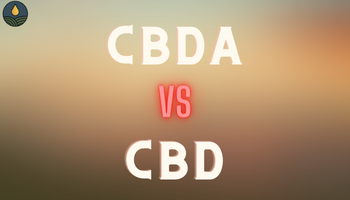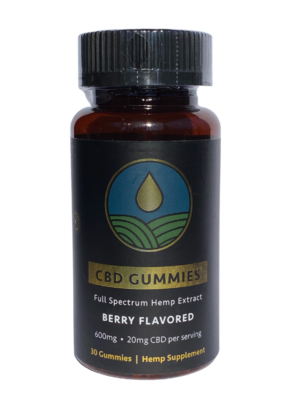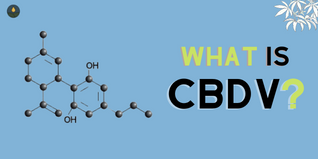

1. Introduction
1.1 A Synopsis Of CBD And CBDA
Cannabis plants contain the substances cannabidiol (CBD) and cannabidiol acid (CBDA). Due to its possible therapeutic properties, CBD has drawn a lot of attention and is frequently seen in many different products. However, new studies have shown the potential efficacy of CBDA, CBD’s precursor, as well as its distinct characteristics.
1.2 The Article’s Goal
The purpose of this article is to investigate if CBDA or CBD is more potent. We can learn more about CBDA’s medicinal potential by reviewing the CBDA research that has already been done, contrasting its qualities to those of CBD, and weighing the possible advantages.
1.3 The Significance Of Recent CBDA Studies
The study of CBDA’s medicinal potential has drawn more attention in recent years. Despite CBD’s vast research, CBDA’s potential advantages and efficacy are still being uncovered. The growing body of research on CBDA emphasizes the necessity of a thorough assessment of its effectiveness and comparison with CBD to help medical professionals and those looking for alternative treatments.
2. Understanding CBD And CBDA
2.1 Describe CBD.
a. Definition And Origin:
A non-psychoactive substance called CBD can be found in cannabis plants. It is known for its potential medicinal effects and is extracted from hemp or marijuana plants.
-
 Full Spectrum Hemp Extract CBD Gummies – Berry Flavor$49.00Rated 5.00 out of 5 based on 1 customer rating
Full Spectrum Hemp Extract CBD Gummies – Berry Flavor$49.00Rated 5.00 out of 5 based on 1 customer rating
b. Popular Uses And Benefits:
Numerous illnesses, including managing pain, reducing anxiety, easing epilepsy symptoms, and enhancing sleep quality, have all benefited from the use of CBD.
2.2 What Is CBDA?
a. Definition And Formation:
The raw cannabis plant contains CBDA, which is the acidic precursor of CBD. When exposed to heat or light, CBDA is transformed into CBD through a process known as decarboxylation.
2.3 Key Differences From CBD:
Due to the differences in their chemical makeup, CBDA and CBD interact differently with the body’s endocannabinoid system (ECS). While CBD binds directly to cannabinoid receptors, CBDA is thought to affect the ECS by decreasing enzyme activity, among other possible ways.
3. Exploring The Potential Benefits Of CBDA
3.1 Anti-Inflammatory Properties
a. Recent Studies On CBDA’s Anti-Inflammatory Effects:
A growing body of research indicates that CBDA might have important anti-inflammatory capabilities. Studies have shown that it has the potential to lessen inflammation in a number of illnesses, including inflammatory bowel disease and arthritis.
b. Comparison To CBD’s Anti-Inflammatory Properties:
Although CBD also has anti-inflammatory properties, CBDA’s mode of action and effectiveness in lowering inflammation need more research and comparison.
3.2 Effects On Nausea And Vomiting
a. The Effects Of CBDA On Nausea And Vomiting Have Been Studied.
According to studies, CBDA may be useful in treating nausea and vomiting, especially in cases of chemotherapy-induced nausea and vomiting (CINV). Preclinical and clinical studies are being done to see whether CBDA has any potential as an anti-nausea medication.
b. Comparing CBDA And CBD In The Treatment Of Nausea
Studies comparing the anti-emetic effects of CBDA and CBD can shed light on how they differ from one another and suggest possible combination therapies.
3.3 Neuroprotective And Antioxidant Qualities
Studies highlighting the antioxidant capacity of CBDA have shown that it has antioxidant characteristics that may help protect neurons from oxidative stress and maybe slow the progression of neurodegenerative diseases. To completely comprehend CBDA’s antioxidant mechanisms and its superiority to CBD in terms of neuroprotective properties, more study is needed.
Compared to CBD, which has been extensively investigated for its neuroprotective effects, the latter has shown promise in treating diseases including Parkinson’s and Alzheimer’s. If CBDA offers special advantages in neuroprotection, its effectiveness can be evaluated and compared to CBD.
4. CBDA Bioavailability And Absorption
4.1 Issues In Getting CBDA Into The Body
a. The Instability Of CBDA And Its Conversion To CBD:
- Due to its intrinsic instability, decarboxylation of CBDA into CBD is a simple process. This makes it difficult to keep CBDA pure during extraction, storage, and delivery.
- Researchers are looking into a number of tactics to increase the stability of CBDA, including novel delivery systems, formulation strategies, and encapsulation techniques. These developments are meant to boost CBDA’s bioavailability while preserving its medicinal potential.
4.2 CBDA’s Bioavailability Against CBD’s
a. Studies On The Bioavailability And Absorption Of CBDA
Only a few studies have looked into CBDA’s bioavailability. In order to evaluate CBDA’s efficacy and choose the best dose regimens, it is essential to comprehend how it is absorbed, processed, and distributed throughout the body.
b. The Following Variables Affect CBDA’s Efficacy:
Variables like the administration method, formulation, and interactions with other drugs can have an impact on the bioavailability and effectiveness of CBDA. To perfect CBDA’s delivery systems and enhance its medicinal potential, more study is required.
5. CBDA Safety And Side Effects
5.1 Safety Profile Review
a. Existing Research On The Safety Of CBDA
Although there hasn’t been much thorough research on CBDA’s safety, the safety profile of CBD has led to a broad consensus that it is safe. To completely comprehend any potential interactions and long-term impacts, more study is required.
b. Comparison Of The Negative Effects Of CBDA And CBD:
The potential negative effects of CBDA are anticipated to be comparable to those of CBD, which are typically minor and well tolerated. These might include changes in appetite, dry mouth, and sleepiness. Individual responses, however, may differ, so it’s crucial to speak with a healthcare provider before use.
5.2 Possibly Interfering Medications
a. Investigation On How CBDA Interacts With Drugs:
CBDA may interact with some medications, particularly those that are liver enzyme-processed. According to preliminary research, CBDA may block specific enzymes involved in drug metabolism, potentially changing the concentrations of drugs in the blood.
Warnings and dosage suggestions: Before using CBDA, people who are taking medication should speak with their doctor to understand any possible interactions and alter their dosage. For people with liver impairment or those taking drugs with a constrained therapeutic window, medical care is especially crucial.
6. Present Research Limitations And Future Directions
6.1 Research Gaps About CBDA
a. Areas That Require Additional Research:
Further studies are needed in a number of areas, including the precise mechanisms of action of CBDA, appropriate dosing regimens, long-term safety assessments, and further studies comparing CBDA and CBD head-to-head to assess their relative efficacy.
b. Conducting CBDA Trials Has Certain Difficulties.
Conducting controlled studies on CBDA is difficult because of the legal and regulatory environment surrounding cannabis research. However, it is hoped that more thorough research can be done to properly examine CBDA’s therapeutic potential as restrictions change.
6.2 Prospective Uses For CBDA In The Future
a. The Following Medical Disorders Could Gain From CBDA Research:
CBDA has shown promise in treating a number of illnesses, including inflammatory disorders, motion sickness, neurodegenerative diseases, and maybe other ailments like anxiety and pain relief. Research into CBDA’s potential medicinal uses may continue.
b. Possibilities For CBDA-Based Treatments Include:
CBDA-based therapies have the potential to lead to the creation of new medicines for particular illnesses. For instance, CBDA formulations that aim to enhance gastrointestinal health in inflammatory bowel illness or research CBDA’s potential to manage the negative effects of chemotherapy.
7. Conclusion
7.1 A Summary Of The Main Ideas Presented
In this paper, we compare the possible efficacy of CBDA and CBD in terms of effectiveness. We compared CBD and CBDA, looked at how they might help with things like inflammation, nausea, and neuroprotection, and emphasized the difficulties with CBDA’s stability and bioavailability.
7.2 Evaluation Of CBDA’s Effectiveness Overall In Comparison To CBD
The study on CBDA is still in its early phases, despite the fact that it shows promise in a number of therapeutic fields. While some studies indicate that CBDA may provide special advantages, additional study is required to draw firm conclusions about its efficacy in comparison to CBD.
7.3 Demand More Investigation Into The Potential Advantages Of CBDA.
Further study is essential to comprehend the therapeutic potential of CBDA and its relative efficacy to CBD. The mechanisms of action, pharmacokinetics, long-term safety, and therapeutic efficacy of CBDA must all be thoroughly studied. Healthcare experts, researchers, and others looking for alternative treatments will all benefit from these discoveries.
In conclusion, the investigation of CBDA’s potential efficacy in comparison to CBD opens up new areas for study and therapeutic uses. As scientific research grows, a thorough grasp of CBDA’s advantages and its function in healthcare can be formed, assisting in the creation of novel and potent therapies.


